UFO 50 Review
UFO 50 Review
When I first started playing UFO 50, I truly expected that this was going to be a strange set of games that I would flip through for a couple of minutes and forget all about. Instead, I lost all sense of time drowning deeper into what felt like an abandoned archive of games by a company that never existed. It is an eerie but engrossing product that does its best to simulate what would have taken place if fifty games were created by a team of programmers during the era of the 80s over a ten-year period.
A Fictional Company That Actually Functions
I was attracted initially by the presentation of UFO 50 as a sort of anthology from a fictional company called UFO Soft. It was something that had the potential to be a gimmick, but playing through a few of the games, I appreciated that the team committed fully to the concept. Each of the games is presented as part of the evolution of a fictional company, from crude starting efforts through increasingly improved and ambitious later titles. Even the in-game developer diaries and instruction books contribute to the cover story, and the overall set presents itself as personal and alive.
So Many Surprises, So Many Games
Fifty games is a lot to take in. At first, I rushed from title to title, but it quickly became overwhelming. When I finally found my stride and tackled each one as its own mini world, the magic started. Certain titles, like Bushido Ball, were immediate hits, with their frenetic, action-filled matches. Others, like Mortol, surprised me with odd, yet wonderful, mechanics that I learned by experimentation. It quickly became clear that this collection is full of experiments, some more polished than others, but each with its own personality.
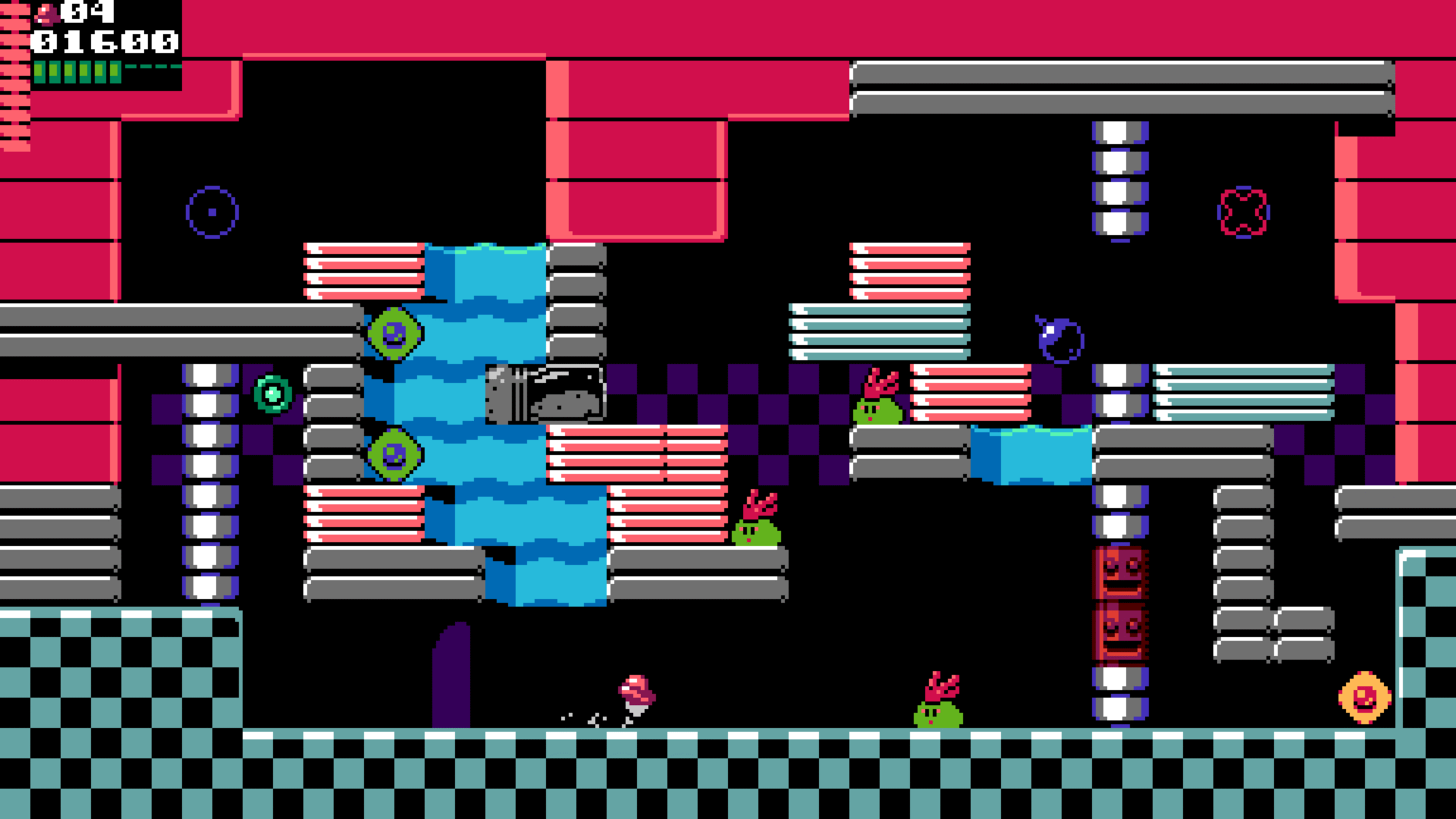
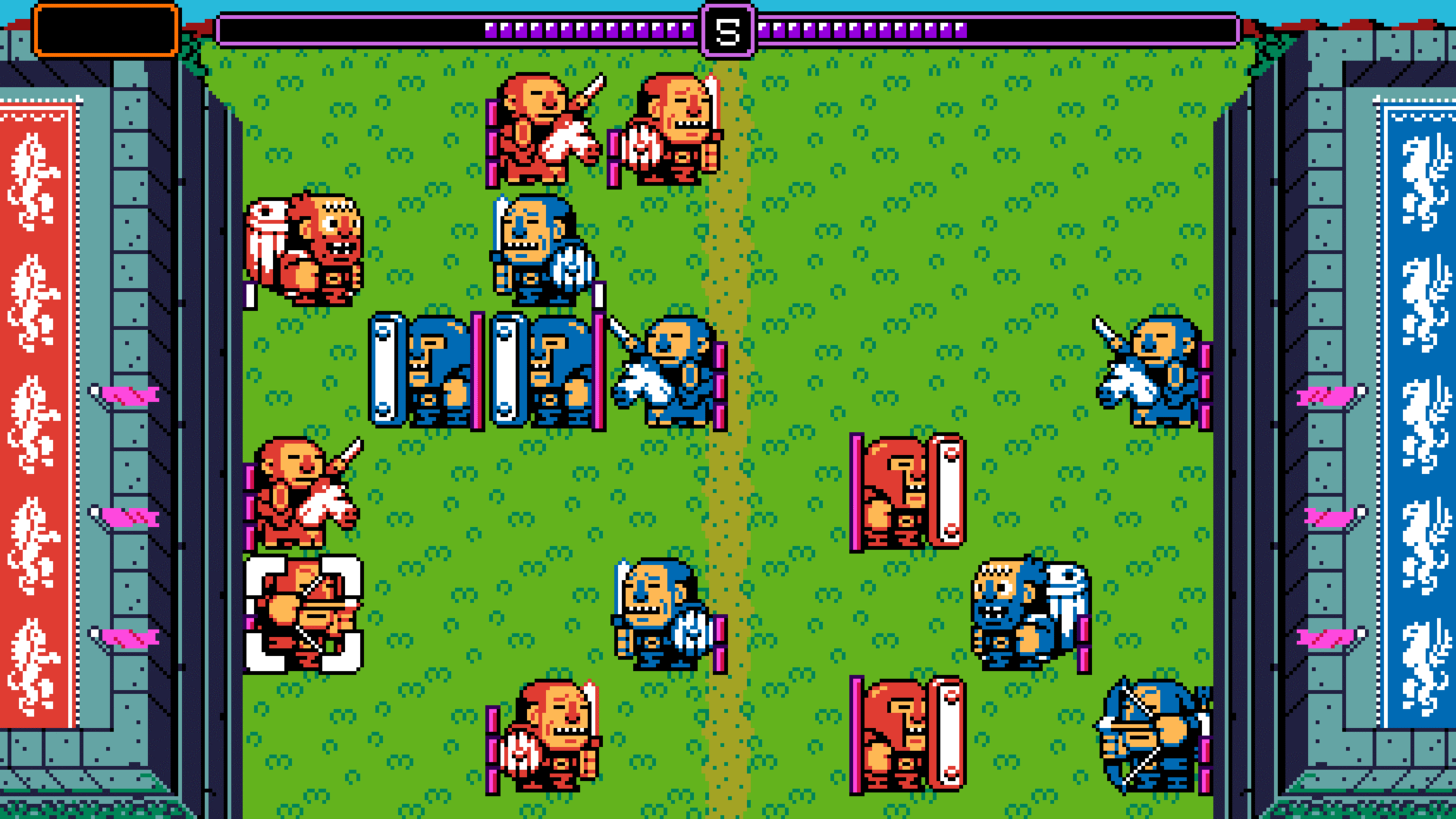
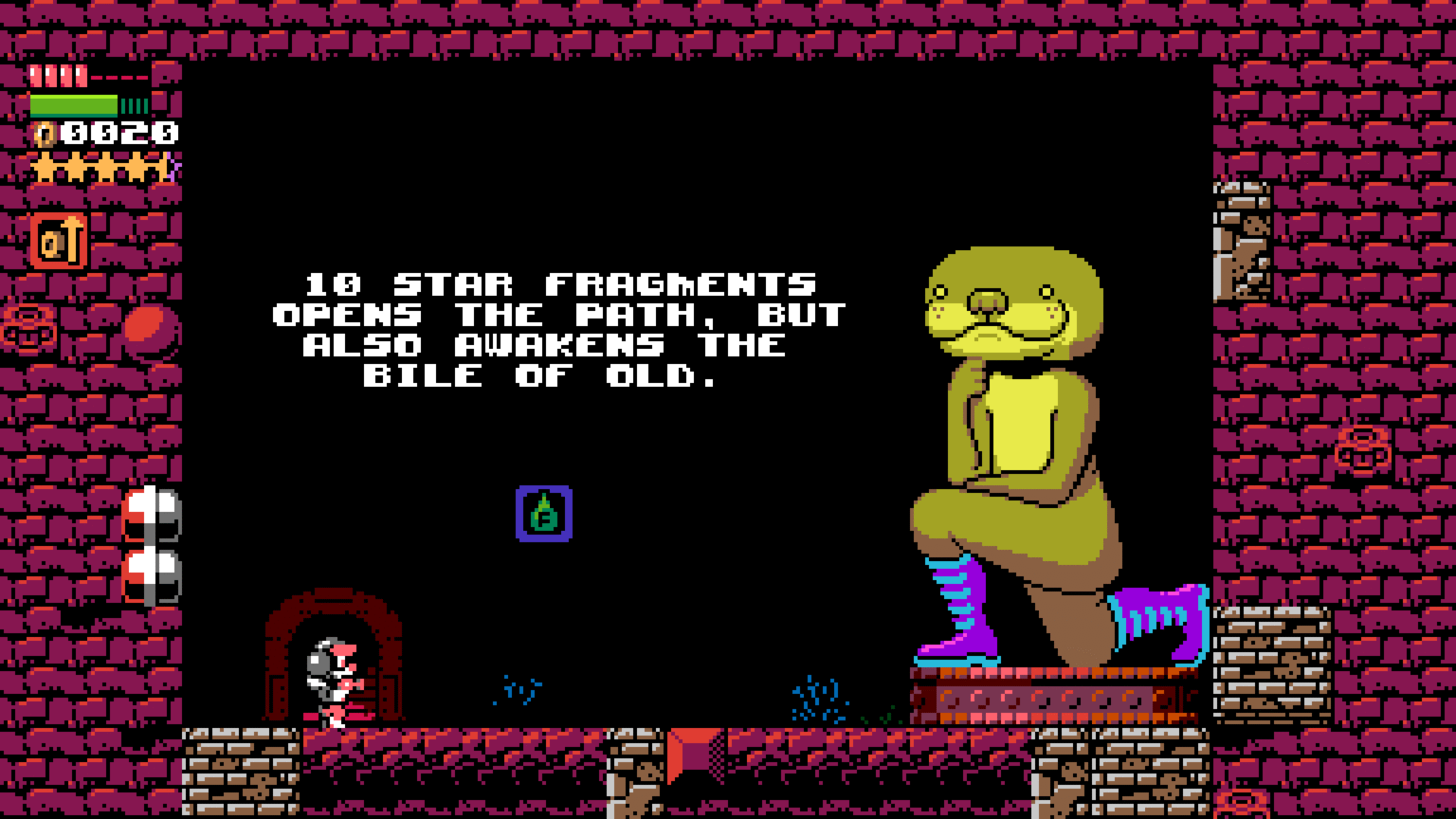
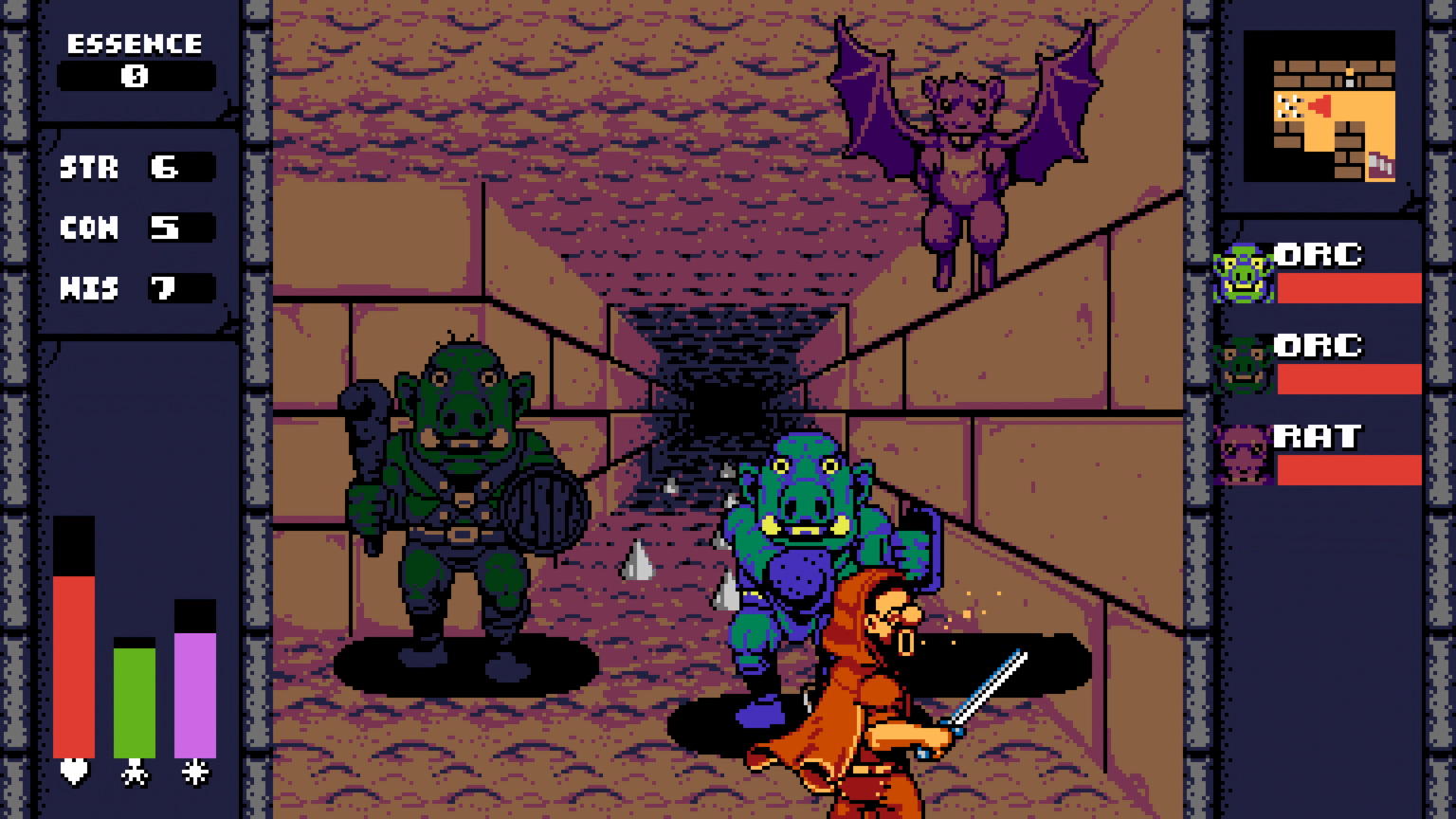
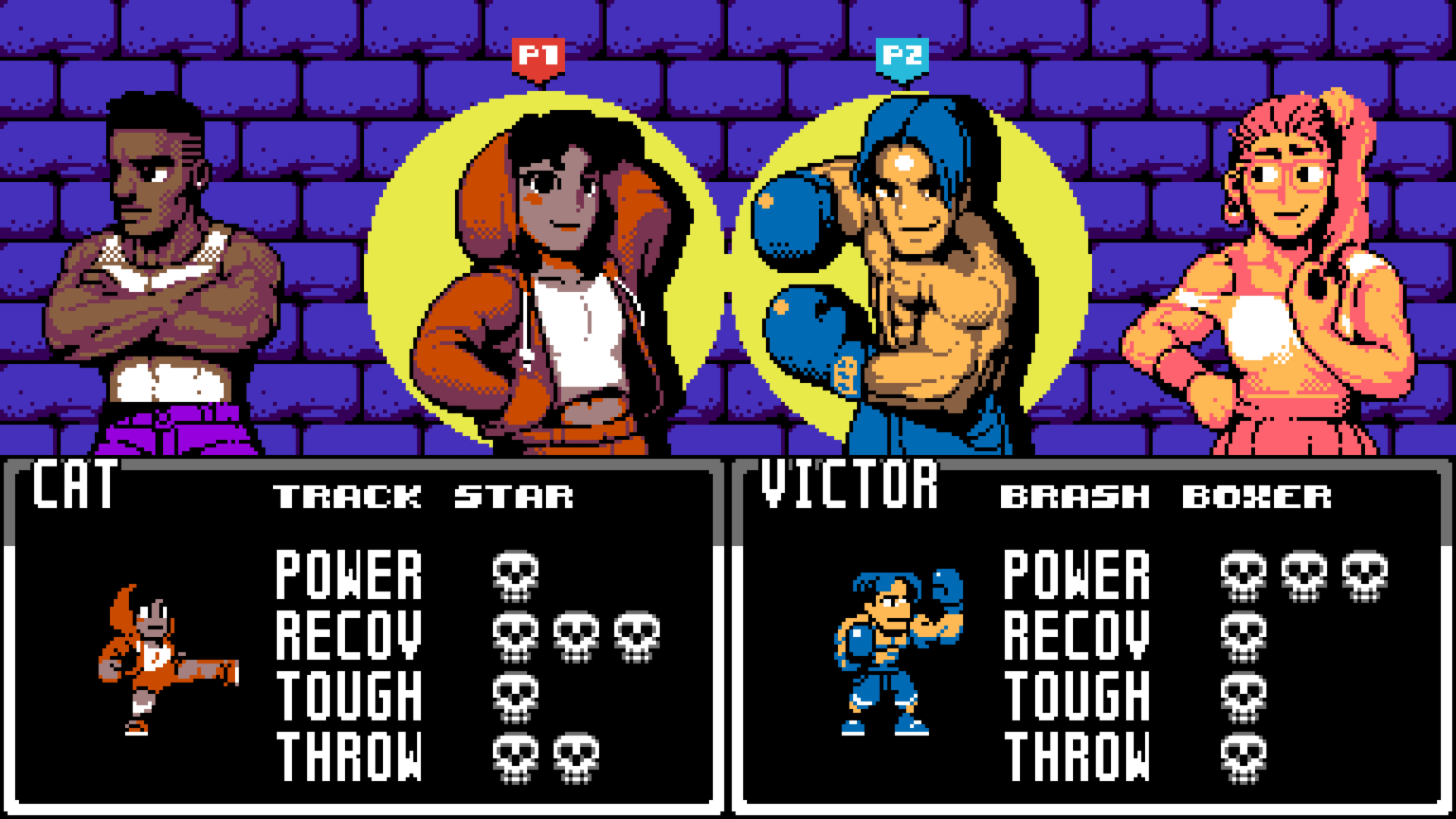
It’s what’s wild. I went from battling aliens in a side-scrolling shooter to tackling a puzzle game that had me baffled for longer than I’d care to acknowledge. Not every game held my interest, but the variety kept me on my toes and continually surprised me.
A Retro Flair With Modern Design
Aesthetically, the UFO 50 is a love letter, but one that isn’t fixed on a single platform like the NES or Sega Master System. The 32 color palette creates blocky, saturated visuals that feel both familiar and distinct within the same world. The sounds are equally endearing, with chunky-sounding effects and basic melodies that reminded me of the arcade, but everything is executed with a smooth polish that modern players are going to love.
Patience is Essential
One of the first things that became clear is that UFO 50 isn’t going to hold your hand. A lot of the games dump you in with minimal, or in a few places, zero instructions. You learn by doing, by dying, and repeating the process. For players that are used to tutorial-screen heavy instructions and modern standards, it’s jarring, but it’s all part of the retro appeal. It reminds me of when I’d spend hours learning how a piece of software worked due to the fact that that was all part of the experience.
Final Thoughts
UFO 50 is not the kind of casual comp you get through in a weekend. It’s the kind of collection you’ll be exploring for weeks, taking time to absorb the quirks of each release. They sound like lost classics, in large part and others sound like strange little experiments. And that’s exactly the beauty of it. It’s like opening a time capsule from an alternate universe where UFO Soft truly existed and they gave their all for each cart that they created. If you have a nostalgic affection for old-school gaming and aren’t put off by a little roughness around the edges, then UFO 50 is a goldmine of inventive, quirky and sometimes genius little games. It doesn’t aim for perfection. It’s all about embracing the messy, wild unpredictability of game development in its purest form
**Disclaimer:** All images used in this review are the property of Mossmouth and the UFO 50 development team.
